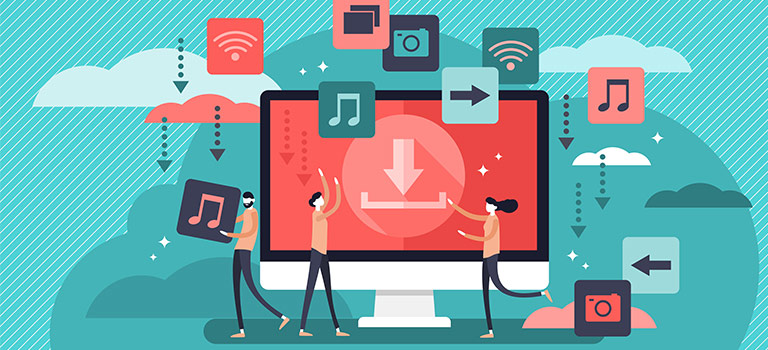Digital content can be quite expensive. Especially when you get into the high-end software packages. Sometimes this content costs several thousand dollars. But not everyone can afford these prices. If you have spent any amount of time on the internet, you have heard of digital piracy. Digital piracy is a form of copyright infringement. However, piracy is not limited to just software. Piracy can include movies, music, books, and games as well. There are many consequences of digital piracy.
Digital piracy is the act of downloading and or distributing copyrighted material and intellectual property without paying for it. And it is most certainly an illegal act. Digital piracy is a violation of federal copyright laws. It can result in steep fines and imprisonment. Think of digital piracy as a form of digital theft. Digital piracy costs companies billions of dollars each year. However, it is not just about financial loss.
Why Does Piracy Exist?
Not everyone who uses the internet is a computer pirate. Most people abide by the laws and pay for the content and software they use. However, some users believe that software, movies, music, and games should be freely available. Others do so out of financial hardship. But it is not always just about the money.
- The most common reason for digital piracy is the unwillingness to pay. Obviously, people want things for free. Torrent websites and P2P sharing make it easier than ever to download. You can obtain everything from software to movies and books. And in many cases, it can take only a few minutes to download them.
- In many cases, people download illegally due to financial hardship. They simply cannot afford to buy it. Many people just do not have the finances available to purchase legally.
- Another common reason is the belief that companies have enough money already. They may believe they have the right to freely distribute to less fortunate and give everyone a chance to enjoy or use it.
- Some people do it for financial gain. Hackers download pirated content with the intention of reselling it, making a profit.
- Hackers and social engineers use pirated content to spread malware and infect a user’s system.
- One-time use is another excuse for pirating copyrighted content. Users may want to see if a movie is any good before going to watch it at the theater. Similarly, one may want to download software to run a singular task. After using it one time, they delete it or uninstall the software.
- Some people do not see digital piracy as theft. They do not view digital content the same as they do something physical.
The Consequences of Digital Piracy
The consequences of digital piracy can be high. Imagine, for a moment, you are an aspiring songwriter and musician. You invest an entire year writing your first album. Your new album is finally produced and hits the market. You begin making a modest amount of money. However, you discover that your album has been copied and distributed for free over the internet. Now you begin losing money. You cannot afford to write a second album, due to this financial loss. Additionally, you discover someone selling your album for a reduced price. As a result, not only are you losing money, but someone else is profiting from your work. Without copyright laws, you would have no legal recourse.
Aside from legal trouble, digital piracy can also have implications on cybersecurity. As stated above, hackers can use pirated content to spread malware, trojans, and viruses. Companies who use pirated software open themselves up to copyright violation and infringement. They also expose their networks to potential malware or virus infection. Hackers then use these infected systems to launch an attack or to mine cryptocurrency.
Torrent downloading comes with its own risk. Because those who download are also distributing as well. IP addresses are public and can be easily tracked. Because pirated software cannot be updated, this opens the system to attack through the use of vulnerabilities. Security patches are not installed because the software cannot be validated by the update server. Pirated operating systems can have critical services disabled. Firewalls and updates can be disabled, resulting in open vulnerabilities and less security.
Protecting Yourself
It can be tempting to pirate digital content. But the risks often outweigh the benefits. You can get into serious legal trouble if caught, resulting in jail time and serious fines. But legal trouble is not the only threat from digital piracy. Malware and vulnerabilities can put systems at serious risk of attack. While it may seem harmless, piracy costs billions every year in damages and loss. As a result, that cost impacts consumers through increased prices.
The only way to protect yourself from piracy is to not download illegally. Only use trusted software from trusted sites. Celltrackingapps.com also recommend to not accept copies from friends or from unfamiliar sources. If you cannot afford it, look into trial versions or free software. Open source software is a great free alternative to piracy. Use streaming services to listen to music and watch movies. Subscriptions are becoming more affordable as time passes. These steps can spare you a lot of trouble in the end. The consequences of digital piracy are very real. Only you can protect yourself from the dangers.
Tags: Copyright, Cryptocurrency, Cybersecurity, hackers, Malware, Piracy, Trojans, Virus


